Hope rises for HIV patients, others as NASS vows to implement NH Act
ABUJA – Nigeria’s health sector may get its biggest allocation ever if the Senate makes good its vow to fully implement the National Health Act 2014 in the 2018 national budget
Chairman Senate Committee on Primary Health Care and Infectious Diseases, Mao Ohuabunwa, said on Tuesday that the Red Chamber had taken a decision to implement the Act in 2018 and consequently overrule the Presidency which has failed to capture the one percent consolidated revenue of the Federal Government demanded by the Act to be allocated to the health sector.
The executive had budgeted about 71 billion naira to the health sector in 2018 Appropriation Bill presented by President Muhammadu Buhari recently to the joint National Assembly session.
Ohuabunwa said at an event marking World AIDS Day at the Presidential Villa, Abuja, on Tuesday that implementing the Act would bring relief to persons living with HIV/AIDS and other disease conditions in the country.
He said the fund would bring general lift to the nation’s health sector, including primary health care and universal health coverage drive.
Addressing the gathering, which comprised heads of foreign missions in the country, donor partners and other dignitaries from around the country, the Director-General, National Agency for the Control of AIDS, Dr Sani Aliyu, said it was time to put HIV/AIDS at the forefront of universal health coverage in the country. He said such is the vision of the National Health Policy of 2016.
“Since the first case of HIV was reported in Nigeria in 1986, we have averted about 1.5 million deaths and over five million new HIV infections. We reduced HIV prevalence from a peak of 5.8% in 2001 to 3.0% in 2014. In the last six years, we the number of new HIV infections has gone down by 56% and annual AIDS related death by 22%.
“Today, we have an estimated 3.2 million people living with HIV in Nigeria. Only recently, we achieved the milestone of identifying and placing over one million persons living with HIV on life saving antiretroviral drugs. In other words, we are gradually ‘turning off the tap’ of new infections while mopping up those who are infected and enrolling them into care in our ever-growing ART programme.
“We are also gradually closing the unmet need for prevention of mother to child transmission. While we commend ourselves for these achievements, we acknowledge the huge unmet need for ART; only nine states have surpassed 50% ART coverage. The rate of Mother to Child transmission of HIV in Nigeria is still unacceptably high. We certainly need to do more at the federal and state levels to take ownership of our HIV/AIDS response and close these gaps,” he said.
He said if the country must take its response to the next level, it must address the challenges related to health system infrastructure, unmet need for commodities, data quality and human resource for health and funding. These challenges, he said, constitute key barriers to universal access to HIV/AIDS services in the country.
According to him, it costs about N50,000 to provide ART to a person living with HIV for a year. He explained that with the size of the country’s treatment programme, government would need at least 50 billion naira annually to keep the patients on treatment, while it would need triple the amount annually to achieve and maintain ART coverage saturation in the country.
“This underscores the fact that the federal government cannot bear this burden alone; state governments and the organized private sector must play their part. We certainly need to increase investment in the health of our citizens, optimize our response strategies and strengthen our coordination and accountability frameworks to achieve optimal returns on our investment in health.
“His Excellency, Muhammadu Buhari GCFR President and Commander-in-Chief, Federal Republic of Nigeria demonstrated political will to improve access to ART in Nigeria when, a year ago, he launched the Fast Track Plan to place an additional 50,000 Nigerians living with HIV on ART each year. He has also assured the ongoing provision of ART to the 60,000 PLHIV in Abia and Taraba States under the Presidential Treatment Programme since the inception of this administration. In addition, the National Assembly has committed to the implementation of the National Health Act provision of one percent of the consolidated revenue fund for health from 2018,” he said.
He appealed to state governors in the country to commit to increased funding for HIV/AIDS, by allocating at least 0.5 to one percent of their monthly federal allocation to address the unmet needs for HIV/AIDS in their respective states.
This, he said, would go a long way in addressing the commodity unmet needs and health systems strengthening in their states.
He added that NACA was working with the Federal Ministry of Health and development partners to conduct a national population based survey that would provide up-to-date data on the current burden of the HIV/AIDS epidemic in 36 states of the country and FCT.
In his remarks, Minister of Health, Prof. Isaac Adewole thanked donors that have supported the country in fighting the disease.
He said in 2016, Joint United Nations Programme on HIV/AIDS, UNAIDS, report revealed that an estimated 6.7 million people live with HIV/AIDS globally, and Nigeria contributes about 10 percent of the burden.
“A layman interpretation of this figure is that one out of every 10 HIV positive person in the world is a Nigerian. In absolute term, it is estimated that about 3.2 million people live with HIV/AIDS in Nigeria, ranking only second to South Africa. Access to care by those in need remains a challenge.
He said it remained a concern that after several years of interventions, access to pediatric care services continues to hover around 28 percent. He noted that it was equally worrisome that PMTCT services were available to only 30 percent of the pregnant population. “These poor indicators are unacceptable and require a rethink around our coordination strategies for the containment of HIV/AIDS in Nigeria,” the minister said.
He emphasized that access to health, including HIV treatment is a fundamental human right.
He also said government is working hard to reverse the donor-driven approach to national response to HIV, adding that so far, government is providing care to about 60,000 people living in Taraba and Abia states and government would place additional 60,000 people on treatment. “
President Muhammadu Buhari, represented by Secretary to the Government of the Federation, Mr Boss Mustapha, said: “Our commitment to universal health coverage for all Nigerians align with the Africa Union roadmap on shared responsibility and global solidarity to address HIV/AIDS, malaria and tuberculosis in a cerebral manner. We are committed to Africa Union goal to end AIDS and other infectious diseases by 2030.
“As Nigeria joins the rest of the global community to commemorate the 2017 World AIDS Day, I want to assure you all that the Federal Government appreciates the achievements and challenges related to the fight against HIV/AIDS. The burden of HIV on women, young people and babies born with HIV in Nigeria and in Sub-Saharan Africa is a clog in the wheel of our socio-economic development. This situation is unacceptable to the Federal Government and to all well-meaning political leaders.
He said he had demonstrated his commitment to fighting the AIDS pandemic by deciding to commit more funds, and place 50,000 people living with the virus on treatment yearly from 2018. “This is in addition to about 60,000 persons on HIV treatment that we are already responsible for in Abia and Taraba states,” he said.
He also said there is need to institute effective accountability framework for AIDS resources.

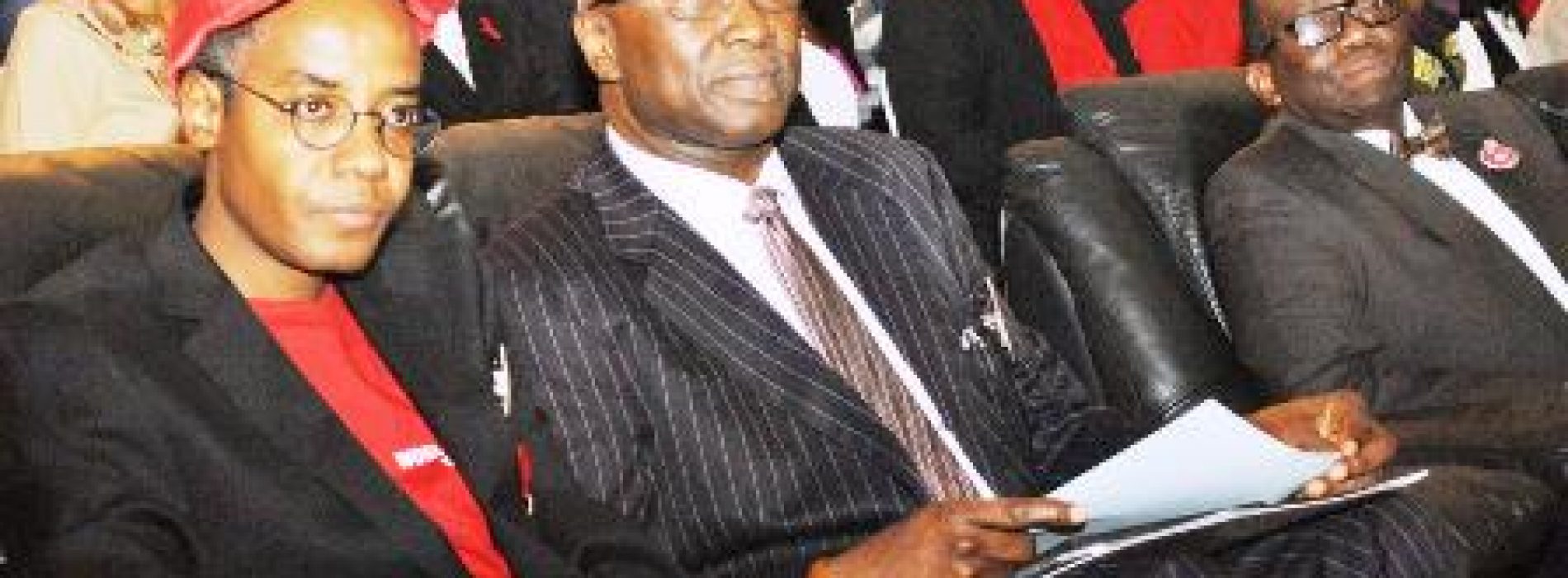
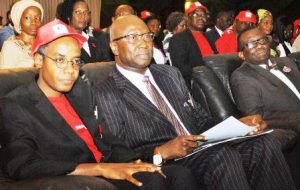
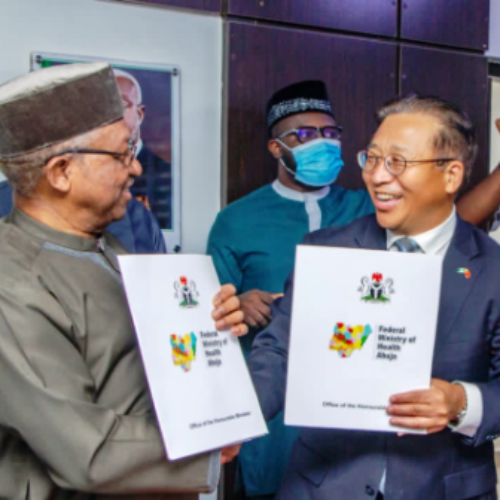
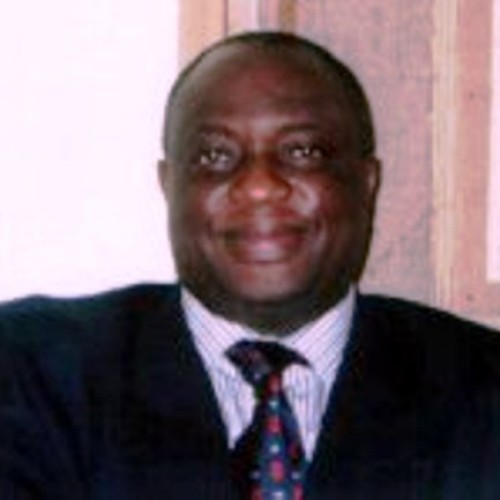
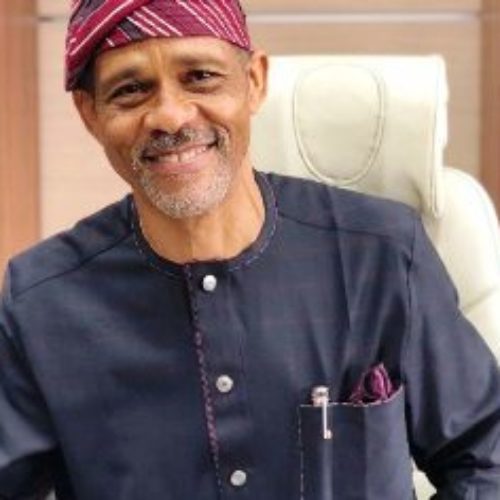


0 Comments
No Comments Yet!
You can be first to comment this post!